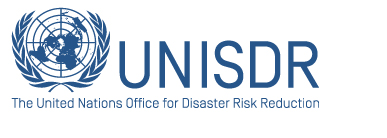During the opening ceremony, Rosales announced that in the coming days, the government of the Republic would present the State Policy for Integrated Risk Management to the Honduran society, which along with the modernization of COPECO, represents one of the largest achievements of the current administration.
"The policy will be presented during the commemoration of the 15thanniversary of Hurricane Mitch in the country, an event that not only left us with tragedy but also lessons and a great opportunity to further strengthen a culture of prevention in the country," the official said.
The workshop is being held prior to the commemoration of the International Day for Disaster Reduction (IDDR) on October 13thto promote a global culture that supports a greater understanding of how to prevent, mitigate and prepare for disaster, as set forth by the United Nations General Assembly in 2001.
This year, the IDDR is dedicated to people living with disabilities, who are among the most excluded groups in society, and whose difficult situation is magnified in the face of disaster. Participants include representatives from institutions such as the Pilar Salinas School for the Blind and the Juana Leclerc Psycho Pedagogical Institute.
This and other activities planned for the coming months are part of the 2.8 million euro investment by the Directorate-General for Humanitarian Aid and Civil Protection of the European Commission in Honduras through its Disaster Preparedness Programme (DIPECHO), whose overall objective is to increase the resilience of nations and communities in the face of disasters.
Participants will strengthen knowledge of the status of risk management in the country, participate in the analysis of priorities and proposals to address the identified challenges, and learn about successful tools and experiences developed primarily by partners of the DIPECHO Action Plan 2012-2013, in order to create strategic alliances and synergies among different organizations and institutions, towards the construction of the National Integrated Risk Management Report in Honduras, which is expected to be published in November this year.
The workshop is organized by COPECO, the United Nations Office for Disaster Risk Reduction (UNISDR), the Coordination Centre for the Prevention of Natural Disasters in Central America (CEPREDENAC), the Directorate-General for Humanitarian Aid and Civil Protection of the European Commission (ECHO) and organizations of the 2012-2013DIPECHO Action Plan in Central America: UNDP, GOAL, DCA, FINNISH RED CROSS, AYUDA EN ACCIÓN and Plan International - UNICEF.
The 2012-2013 DIPECHO Action Plan for Central America focuses on reducing vulnerability, increasing local response capacities and contributing to community preparedness to influence the institutions that are able to face future extreme events to avoid disaster situations. It also includes activities such as protecting the livelihoods of disaster-prone communities, the creation of early warning systems, mapping hazardsand creating contingency plans, and coordination between institutions and stakeholders before, during and after an emergency, among others.
The following projects are being implemented in Honduras:
Organization |
DCA |
UNDP |
Ayuda en Acción |
Finnish Red Cross |
GOAL / GVC |
Project title |
Improving resilience andstrengthening the capacities
of Ladino, Garifuna and Pech populations |
Early Warning and Action System
– Choluteca River |
Strengthening DRR capacities and community
resiliencethree municipalities of the dry tropics inHonduras |
Joining forces to reducerisks in northern
Honduras |
Disaster preparedness, with a community approach,
promoting increasedcoordination in the homogeneous border area
of the Mosquitia |
| |
|
|
|
|
|
Area of influence |
19 rural communities and 4
urbanneighbourhoodsof
theTrujillo and
Lemon municipalities, Department of
Columbus |
7 communities of the
Marcovia Municipality (Dept. of
Choluteca) and 14 neighbourhoods of the
Tegucigalpa Central District
(Department of
Francisco Morazán) |
20 communities
of the Municipalities of Orocuina
(Dept. of Choluteca) and Liure and
Soledad (Dept. of El Paraiso) |
12 communities of the
Municipalities of El Progreso and
Santa Rita (Dept. of
Yoro) |
Nicaragua: 13 communities of the Municipalities of
Puerto
Cabezas and Waspam, RAAN.
Honduras: 16 communities of the Municipalities of Puerto
Lempira and Ramón Villeda
Morales; Dept. of Gracias a Dios. |




